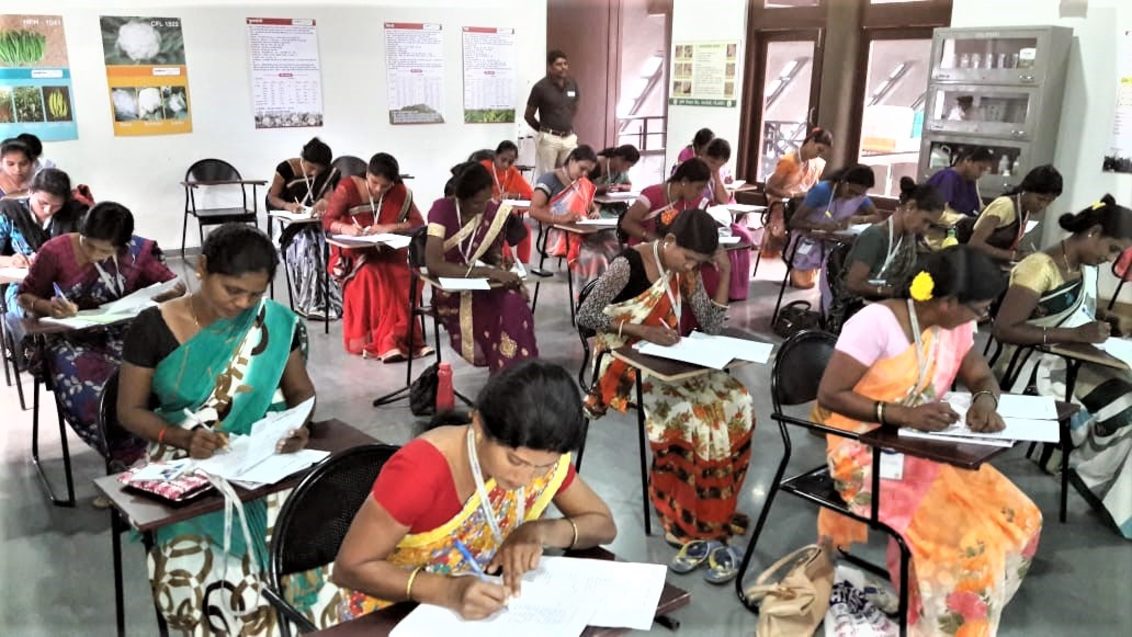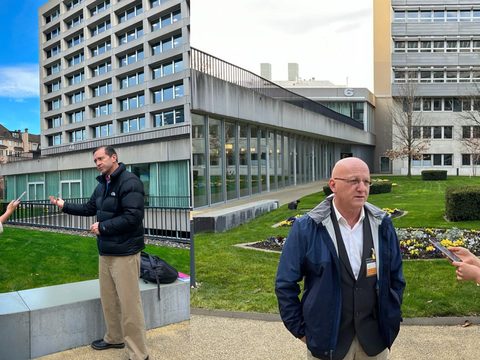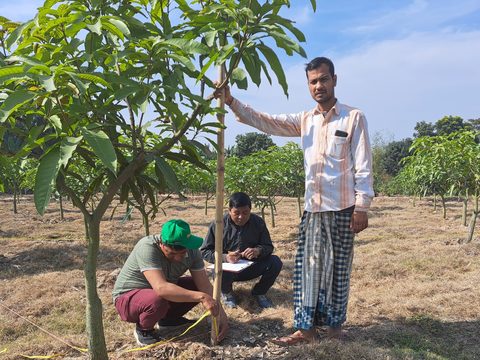Ten years dedicated to training

Worldwide, the COVID-19 pandemic is forcing schools and universities to close. Education and training continue, however, via other channels. In agriculture, for example, radio remains a very important source of advice and information. Our Foundation supports radio extension in Kenya. But internationally we also work through a variety of rural training centers. India is a case in point. As their country moves into full-scale shutdown, Parikrama Chowdhry from our Indian team and Advisor Emeritus Partha Das Gupta look back over an educational decade.
“The aim has been to develop a cadre of rural youth trained in progressive agriculture techniques”, says Partha. “We’ve designed and implemented various models to equip youngsters with high-quality information. These models share four pillars: self-sustainability, quality, affordability, and endurance.”
In 2010, the Foundation helped set up the Anandwan Institute for Transfer of Agricultural Technology (AITA). “The vision was to build an institution which would provide various forms of education”, Partha Das Gupta explains. “We wanted to cover vocational training on agricultural technology, skills development for rural youth and short-term programs for agribusiness employees.” The institute benefited greatly from Partha’s advice.
AITA opened with a two-year diploma course. “The demand was certainly there”, comments Parikrama Chowdhry. “Starting from nowhere, the institute immediately filled 58 of its 60 seats. Sixteen of the first intake were female.” The popularity was justified, as AITA quickly earned a good reputation. “So good, in fact”, smiles Partha, “that about a dozen students had already got job offers before their results came out!”
In 2012-13, the institute decided to upgrade the diploma to a more advanced three-year curriculum. It changed its name to Anandwan Agriculture Polytechnic and invested in further laboratories and infrastructure. Our Foundation helped financially for a year. The new building was ready for the August 2014 academic intake. By then, the Polytechnic was so well established that it could manage without additional external funding. In 2016, it constructed another floor, setting the campus up for sustainable educational impact.
“Other challenges remained, however”, notes Parikrama. “When working with millions of smallholders, one of these is the delivery of technologies and innovations. Companies supplying technology often call this issue ‘last-mile delivery’. From the farmers’ point of view, it is ‘first-mile access’.”
In 2014, Syngenta Foundation India (SFI) began working on this challenge with its Agri-Entrepreneur (AE) model. “This initiative taps into the huge potential of unemployed rural youth, identifying entrepreneurial candidates, and then training and mentoring them for two years”, Parikrama explains. The young people receive 45 residential days’ training on agriculture, environmental sustainability, business, and interpersonal skills. The course is accredited by an institute of the Ministry of Rural Development.
Each AE serves the agricultural needs of 150-200 nearby farmers and trains them on best practices. AE’s also use local networks such as Self-Help Groups to maximize their reach. There are currently over 2700 AE’s across nine Indian states and 5500 villages. To scale the model up further, SFI and Tata Trusts recently created the AE Growth Foundation, which will focus exclusively on developing agri-entrepreneurs. AEGF aims to launch 100,000 AE’s over the next five years.
Beginning in 2017, SFI additionally launched its SURYA program, training young rural people to become Agriculture Technology Assistants (ATAs). “Technology and extension are key determinants of productivity in agriculture. SURYA focuses on instilling the best agronomy practices based on each region’s agro-climatic conditions” says Parikrama. “The challenge lies in improving farmers' access to the right kind of timely information and ensuring they adopt the proposed practices."
In SURYA, SFI teams up with partners across seven locations. The ATA's typically have some background in agriculture but are unemployed. They are trained to become extension service providers, and many of them are employed by agricultural companies. As well as capacity building, the program also provides placement support. Suitable ATAs can also move on to become Agri-Entrepreneurs. Of 2145 trained by December 2019, 325 had chosen this path. 145 others operate their own enterprises; 663 candidates have joined 120 agribusiness companies. Parikrama says she is particularly pleased that female participation in agricultural development has grown. 452 women have completed SURYA training. Of the 243 ATAs sponsored by the Maharashtra State Government, 210 were women.
Thanks partially to the Syngenta Foundation, they and many other well-trained rural Indians will be ready to serve their country’s agriculture fully again as soon as circumstances allow.
Learn more about the Skill Upgradation for Rural Youth in Agriculture programme in India


